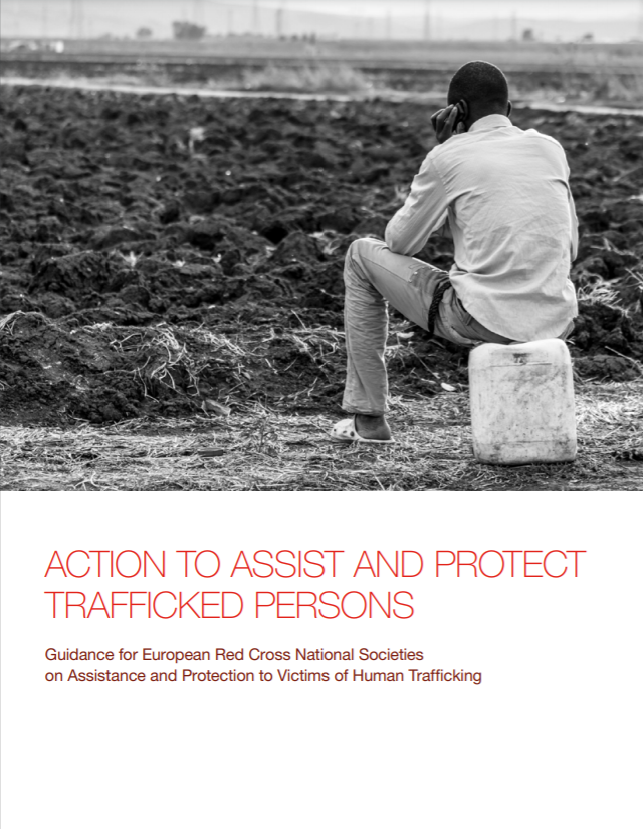
This guide is designed to support European Red Cross National Societies services to respond to trafficking in human beings. Building on and complementing the Migration Policy of the International Federation of Red Cross and Red Crescent Societies (IFRC), the document provides additional guidance to assist and protect trafficked persons (but it is not itself a policy). It focuses mostly on human trafficking in relation to migration. However, victims can be trafficked either transnationally (crossing at least one international border) or domestically (within the borders of one country). The International Red Cross and Red Crescent (RCRC) Movement assists and protects all types of victims of trafficking, including persons who have been trafficked without crossing international borders.
Working with and for vulnerable migrants is one of the long standing traditions of the Red Cross and Red Crescent Movement. The humanitarian response of National Societies in Europe to support vulnerable migrants increases the likelihood of encountering (potential) victims of human trafficking.The IFRC Migration Policy sets out principles for National Societies that they shall take into account and adopt in their work in this field. It acknowledges that “migrants may be subject to human trafficking, sexual or labour exploitation” that expose them to heightened and acute risks to their physical integrity and well-being.
Country
Worldwide
Region
Worldwide
Year
2017